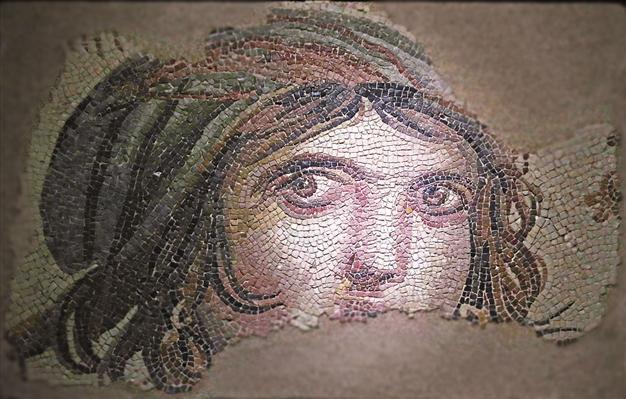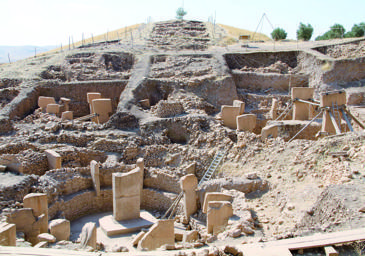Turkey set for first national institute of archaeology
Ömer Erbil ISTANBUL

Gaziantep Mayor Fatma Şahin will convene with archaeologists in the coming days to outline details about Anatolian Archaeology Institute.
Turkey is set to finally acquire an archaeology institute after many years of waiting, with Gaziantep Mayor Fatma Şahin set to convene with archaeologists in the southeastern province in the coming days to outline details about the institute.According to 2014 data, Turkey is currently home to 117 Turkish and 36 foreign excavations. Also, 82 scientific archaeological surface surveys are being conducted by Turkey while 14 are being conducted by foreign countries.
The move will finally give Turkey its own archaeological institute, the Anatolian Archaeology Institute of Turkey, having already witnessed the establishment of German, Austrian, American, French, British, Japanese and Dutch archaeological institutes on its soil.
Gaziantep Metropolitan Municipality has been continuing diplomatic talks with the European Union for the establishment of the institute, with the 28-member union providing 10 million euros of support. Ninety percent of the institute’s budget will be provided by the EU, while the remainder will come from national sources.
The idea for the establishment of the institute emerged in June 2014 during the announcement of the results of 2014 archaeological works in Turkey. Foreseeing its contributions to European cultural heritage, the EU provided a large amount of support to the project.
As part of the project, scientific archaeological works and research will be conducted in Anatolia, seminars will be organized, publications on Anatolian archaeology will be released and a history of religions library will be established. The works of the institute will start on an international level in April.
“During my nearly 12-year parliamentarian term, I have done my best to take steps on the historical and cultural areas of Gaziantep. I have always been aware of this heritage in this land where I was born, grew up and live. Guests first ask ‘What do you have?’ when visiting your homeland. One of our answers is archaeological findings,” Şahin said.
“But we have failed to promote them to the world. During a symposium in Gaziantep, I learned that we had no institute for Anatolian archaeology. For the issue, we contacted our Foreign Ministry, EU Minister Volkan Bozkır, the Culture and Tourism Ministry and the European Commission Turkish Delegation. The project drew the attention of the EU thanks to its possible contributions to the European culture and was accepted,” she said.
 Importance of the institution
Importance of the institution Each country that performs excavations in Turkey has an institute at the same time. Financial support given to the excavations and scientific data are provided by the institutes. Although there are 117 Turkish excavations, Turkey does not have a scientific institute to gather data from Turkish archaeological work.
Universities have almost no communication with each other except through publications. An institute is very important in bringing together all excavations.
Still, because the institute will be under the auspices of Gaziantep Metropolitan Municipality, there are concerns that it could be prevented from becoming a center of Turkish archaeology. To militate against such a situation, there have been situations that an academic committee from universities be formed, with the panel electing the chairman of the institute for each term.
The administration should also be inspected by and be the recipient of funds from the Culture and Tourism Ministry even though it is administrated by the metropolitan municipality, according to suggestions.
The institute will also make a significant contribution to employment in the archaeological field.
















